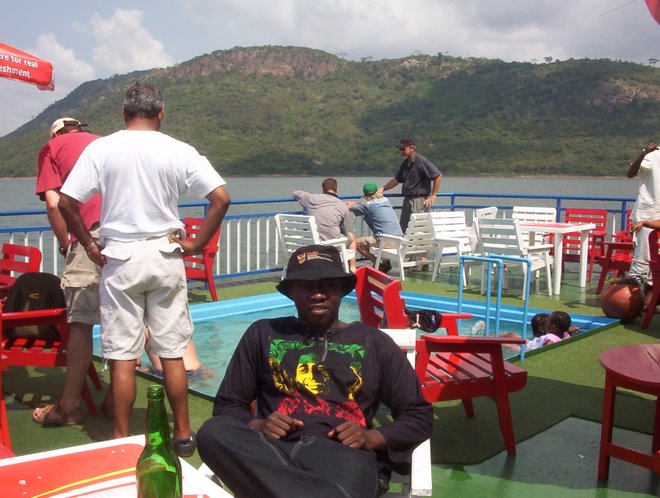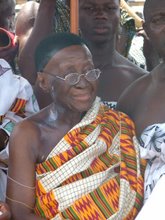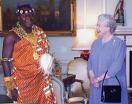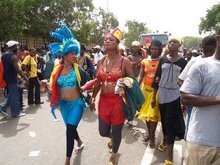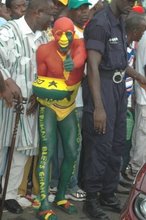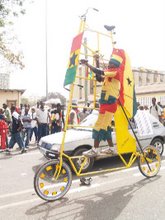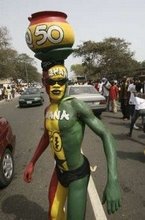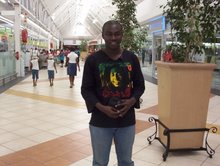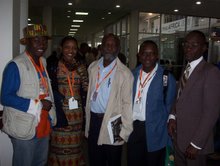Kumasi Shoe Factory to be resuscitated
PICTURE SHOWS ALAN KYEREMATEN (third from right), MINISTER OF TRADE, INDUSTRY, PRIVATE SECTOR DEVELOPMENT AND PRESIDENTIAL SPECIAL INITIATIVES (PSI) INSPECTING THE SHOE FACTORY
THE Ministry of Trade, Industry, Private Sector Development and President’s Special Initiatives (PSIs) has launched a fact-finding mission into the activities of the GIHOC Shoe Factory in Kumasi as a way of helping to resuscitate the defunct factory.
The factory was divested to Newack Commercial Capital of the Czech Republic in 2003 but it has not been able to resuscitate the factory as of now.
Equipment at the factory is currently deteriorating, while thieves have made away with vital components of the machinery.
That, according to Mr Alan Kyerematen, the sector Minister, was deeply worrying to the government.
“We are going to hold negotiations with the Czechs and see how a way forward can be found,” he said in Kumasi on Friday as he paid a familiarisation tour of the factory premises.
He explained that if it came out that the Czechs were no longer interested in the factory and returned it to the government, then his outfit would collaborate with the Association of Shoe Makers in Kumasi to find a possible way of resuscitating the factory.
The shoe factory started operations in 1967 as a state enterprise under the Ghana Industrial Holdings Company (GIHOC), in partnership with a company in the then Czechoslovakia, and produced mainly industrial boots but occasionally produced fashionable shoes upon request.
Between 1973 and 1995, activities at the factory took a nosedive and it was subsequently listed for divestiture.
Some workers of the factory hung around the factory, hoping that a prospective buyer would come on board to engage them.
They subsequently produced shoes upon requisition and used the proceeds to pay themselves until 2003 when Newack came on board to close down the factory permanently.
Mr Kyerematen said Newack paid a deposit and the factory was subsequently handed over to it, hoping that it would resuscitate it.
Currently, part of the factory premises is being occupied by some private individuals, a church and some companies, all of whom are said to be paying rent to Newack.














